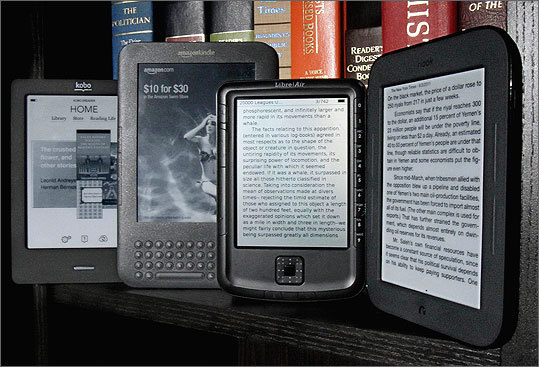Huge Changes in Book Publishing
I can hardly believe the changes I've seen in publishing in the past year. (It's been that long since I actually sat down to add to this blog.) Digital has gone from an explosion to truly a revolution--and in the long run, I think, for the better. It has given editors, agents, and writers new opportunities. And it's allowing readers to help determine what's going to sell earlier on in the process, rather than forcing publishers to guesstimate what they think is going to sell.
All this has caused quite a bit of overtime in the industry.
2012 was certainly the year of the ebook. At many publishing houses, electronic books went from being the neighborhood kid at the dinner table to a true member of the publishing family. Ebooks are no longer an afterthought. They are an integral part of every title, and they affect everything, from design to marketing. Ebooks are books, of course, but they're also excerpts, used as a "teaser" or "trailer," to attract the consumer to buying a whole book. Ebooks typically publish simultaneously with their print counterparts, but more and more, they're publishing ahead of their print siblings or are appearing as e-only titles in the digital marketplace. Meaning: no print book at all.
Electronic publishing has been nowhere more explosive than in romantic fiction. Editors are acquiring and publishing electronic-only and self-published titles at a furious rate. It makes sense; it's a lot less risky to try a self-published or a first-time author now, for two main reasons: (1) the cost of publishing an e-only product are significantly lower than a print book and (2) the turnaround and sell-through on these titles are lightning-fast.
In essence, publishers are trying to provide what readers want: more choices, right now.
This is great news for writers, though an exploded marketplace doesn't always elevate the art and craft of writing. In the past five years or so, some of the bestselling books have been ones that were not elegantly written. Most publishers are businesses, though, so their interest has to lie in what people will buy, even if they don't read what they buy.
But people are reading! They're not just reading what the publishing houses are offering, either. Anyone can be a publisher now. Publishers Weekly offers listings of self-published books in its magazine--some industry professionals predict that 400,000 self-published books will become available in 2013. Not so long ago, many of us in the industry grimaced and held our noses at talk of self-published books. Why? Because so many of those books simply weren't very polished. That is changing, hand in hand, right along with ebooks. And popular "online storytelling" websites such as Wattpad are connecting writers and readers in a way that makes even Margaret Atwood take notice.
The only downside to all this publishing diversity is of course, the dilemma of sorting through too many choices. But from a reader's perspective, this is a great problem to have.
Read on!

2 comments:
Another benefit of ebooks: an almost unlimited backlist. A "backlist" is a list of books that a publisher continues to reprint. In the past, only the books that were strong enough sellers were part of the backlist, but now virtually everything digital can be blacklisted.
Errr...make that "backlisted."
Post a Comment